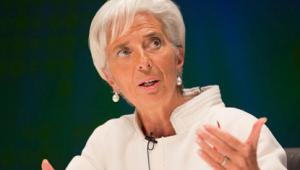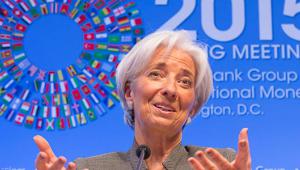Speaking at the Central Bank of Iran today, IMF first deputy managing director David Lipton stressed that the country should focus on opening up and privatising its economy in order to capitalise on sanctions relief.
He stated that Iran’s economy is at a “pivotal moment”. A host of international sanctions were removed after the country adequately curbed its nuclear programme at the start of this year and Iran can now reintegrate with the global economy, he said.
“But positive results depend on overcoming two major obstacles,” Lipton continued. “The first is navigating a difficult global economic situation. And the second is building a competitive and flexible domestic economy.”
Referring to lessons learned from other countries, Lipton pointed out that a loss of monetary stability, a lack of competition and ownership links between banks and companies have proven problematic.
In 2006, Iran’s supreme leader Ayatollah Ali Khamenei issued an executive order requiring the state to reduce the size of the public sector by selling off state assets.
However, many state-owned companies have been sold to entities with deep links to the religious arm of the state, especially the powerful security organisation known as the Islamic Revolutionary Guard Corps.
This had led to a quasi-private economy dominated by a network of influential figures that control most of Iran’s major industries behind the scenes, with links to Iranian banks, including the Central Bank of Iran, and some fully controlled by the IRGC.
Lipton pointed out that in countries in Latin America, Asia and eastern Europe, such arrangements have had consequences ranging from corruption, poor job growth, excessive and irresponsible borrowing and crippled public finances.
“Through the process of liberalisation, competition leads to more efficiency, less corruption and higher productivity,” he said.
“Privatisation reforms prevent the misallocation of credit and thus allow the private sector to grow and create jobs.”
He also highlighted that Iran needs to pursue labour market reforms to achieve greater flexibility to counter high levels of structural unemployment especially among the young.
By removing barriers to competition and foreign investment, cutting red tape, and investing in education and research, Iran can foster more innovation, he continued.
This will require political leadership, popular support and the will to take some “costs and dislocations”, Lipton said.
“The process of reintegrating with the global economy will not be without its challenges, but the potential rewards are worth the effort.”













